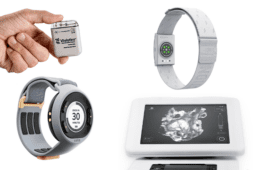MADIT-CRT Long-Term Follow-up Results Presented at the American College of Cardiology and Published in the New England Journal of Medicine
In the longest follow-up to date of cardiac resynchronization therapy (CRT) for mild heart failure patients, Boston Scientific Corporation’s (NYSE: BSX) exclusively sponsored and landmark Multicenter Automatic Defibrillator Implantation Trial – Cardiac Resynchronization Therapy (MADIT-CRT) study demonstrated significant and sustained survival benefit for the indicated population.
The long-term results, presented at the American College of Cardiology’s 63rd Annual Scientific Session by Ilan Goldenberg, M.D., director of the department of cardiology at the Leviev Heart Center at Sheba Medical Center, Tel Hashomer, Israel, demonstrated a 41 percent relative reduction in the risk of death in patients with mild heart failure and left bundle branch block who received a Boston Scientific defibrillator with CRT therapy, compared to patients who received a defibrillator alone. Over 80 percent of patients who received CRT therapy were still alive at seven years. In addition to the mortality benefit, the results demonstrate that these patients experienced a 62 percent relative reduction in the risk of experiencing a first heart failure event when compared to patients who did not receive CRT therapy.
“Heart failure is a progressive disease that is associated with very high mortality rates, especially when the disease is advanced,” said Dr. Goldenberg. “Our findings from the extended follow-up of MADIT-CRT patients indicate for the first time that we can substantially improve long-term survival in this high-risk population by intervening with cardiac resynchronization therapy early in the clinical course of the disease when the patient has only mild heart failure symptoms.”
Boston Scientific has responded to longer patient survival by developing CRT defibrillators with the greatest projected battery longevity in the industry, up to eight years. The longer lasting Boston Scientific CRT-D devices can reduce the need for additional device implants in patients with heart failure, and ultimately reduce health care costs.
“Patients and their physicians should be encouraged to see the low mortality rate for heart failure patients receiving CRT-D therapy,” said Kenneth Stein, M.D., chief medical officer of the Cardiac Rhythm Management Group at Boston Scientific. “The life expectancy of this patient population confirms the need for the Boston Scientific longer lasting battery technology, which can minimize the number of additional device replacements, thus reducing risks to patients and reducing costs for the global health care system.”
The MADIT-CRT trial was sponsored exclusively by Boston Scientific and conducted globally under the leadership of Dr. Ilan Goldenberg and Arthur J. Moss, M.D., professor of medicine at the University of Rochester Medical Center. The MADIT-CRT trial compares ICD to CRT-D therapy in patients with mild heart failure. The original study followed 1,820 patients for an average of 2.4 years and the positive results helped form the basis of expanded indications for patients with New York Heart Class I or II, QRS > 130 milliseconds, left bundle branch block, and ejection fraction (EF) < 30 percent. These long-term data reflect 1,691 of the original patients followed for an average for 5.6 years.
Heart failure afflicts over five million people today in the US and this number is expected to rise to over eight million by 2030.1 The medical cost for treating heart failure is expected to increase from $21 billion in 2012 to $53 billion in 2030*. Heart failure cannot be cured but early diagnosis and treatment can improve quality of life and life expectancy for people who have the disease. For many people with heart failure, the ventricles do not pump in a coordinated way. A CRT device helps the ventricles beat at the same time so that the heart pumps more efficiently.
For more information, visit www.bostonscientific.com.
* Heidenreich PA, et al. Forecasting the Impact of Heart Failure in the US. Circulation Heart Failure. 2013; 6: 606-619
SOURCE: Boston Scientific Corporation




